Thinking about leaving academia for a job in the industry? You’re not alone. Many people are making this move for various reasons.
Moving to the industry can be a smart choice that opens up new opportunities.
You might worry about how your skills will translate to a new type of job. Don’t be! The skills you’ve gained in academia, like research and problem-solving, are very valuable.
Employers need these skills and appreciate your expertise.
You might worry about how your skills will translate to a new type of job. Don’t be! The skills you’ve gained in academia, like research and problem-solving, are very valuable.
Employers need these skills and appreciate your expertise.
Networking is key.
Start connecting with people in your desired industry. Join professional groups and attend events.
These connections can lead to job opportunities and provide insights into your new field.
Ready to make the transition? Keep reading to learn more tips and tricks!

Understanding Industry Expectations
Transitioning from academia to industry requires you to align your skills, adapt to new cultures, and understand career progression. Let’s dive into what you need to know.
Identifying Key Skill Sets
Industry values different skills than academia.
Practical experience is crucial. Employers seek those who can apply knowledge effectively.
Focus on developing technical expertise relevant to your field, such as coding, project management, or specific tools.
Soft skills are equally important.
Communication, teamwork, and problem-solving make you stand out.
Reflect on how your academic experience translates to these areas.
Highlight any leadership roles or collaborative projects to showcase your abilities.
Certifications and training can also boost your profile. Consider industry-relevant certifications to prove your expertise and commitment to continuous learning.
Adapting to Industry Culture
Industry culture can be different from academia. Be prepared for a faster pace and more direct communication. Understanding the company’s dynamics, such as dress codes and meeting etiquette, is essential.
Building relationships is key.
Networking helps you learn and grow. Attend industry events, join professional groups, and connect with colleagues.
This not only expands your knowledge but also opens up new opportunities.
Adapt your mindset from academic research to practical results.
Emphasize efficiency and outcomes. Be open to feedback and ready to adjust your methods to fit company standards.
Industry Career Progression
Career paths in industry can vary widely.
Typically, you’ll start in an entry-level position and move up based on performance. Promotions are often linked to tangible results and meeting specific goals.
Understand the hierarchy and roles within your industry. This helps you plan your career path effectively.
Seek mentors who can guide you and provide insights into moving up the ladder.
Continuous learning is crucial for advancement.
Stay updated with industry trends, new technologies, and necessary skills.
This not only makes you more valuable but also prepares you for higher responsibilities.

Evaluating Your Research for Commercial Application
First, identify the key strengths of your research.
Does it solve a common problem or improve an existing process? Understanding the main benefits helps you see its market potential.
Next, analyze the market. Who needs your research?
Define potential customers: individuals, businesses, or specific industries.
Then, consider the competition.
Are there existing products or solutions like yours? Compare them to your research. What makes your solution unique or better?
Think about practical applications. How can your research be used in real-world scenarios?
List possible applications and industries that might benefit from your work.
Look into cost and scalability.
How expensive is it to produce the solution? Can you scale it up if demand increases? Initial costs and future scaling potential are crucial.
Seek feedback from industry professionals.
Share your research with experts to gain insights. Their feedback can highlight areas for improvement or new applications you hadn’t considered.
Consider intellectual property (IP).
Protect your work through patents or trademarks if applicable. This ensures your research remains yours and adds value when approaching potential investors or partners.
Evaluate the regulatory environment.
Are there laws and regulations affecting your research? Make sure your work complies with industry standards and legal requirements.

Translating Academic Expertise to Industry Relevance
When moving from academia to industry, it’s crucial to showcase how your skills can benefit a business.
First, identify key skills you’ve gained in your academic career. This includes research abilities, critical thinking, and data analysis. Industry employers value these skills highly.
Next, highlight practical applications.
For example, if you’ve conducted extensive lab research, note how this experience translates to problem-solving in real-world projects.
Create a skills matrix. List academic skills on one side and their industry applications on the other. This helps potential employers see the direct benefits of your expertise.
| Academic Skill | Industry Application |
|---|---|
| Research | Market analysis, product development |
| Data analysis | Business intelligence, reporting |
| Critical thinking | Strategic planning, decision-making |
Join professional networks.
Engage with industry-related groups on LinkedIn or attend conferences. Networking can open doors and show you’re serious about the transition.
Tailor your resume to emphasize practical achievements. Use bullet points to detail specific projects and outcomes.
Always body the core message: you can solve problems efficiently, just as you did in your academic research. Be ready to show proof through past projects.
Reach out to industry mentors. They can offer advice and help you bridge gaps between academia and industry.

Strengthening Your Network
Making connections is essential when moving from academia to industry. Use your existing academic relationships and build new ones in the professional world to enhance your career opportunities.
Leveraging Academic Contacts
Start with your professors, classmates, and colleagues. These people already know your skills and work ethic.
Academic conferences are a goldmine for meeting industry professionals. Attend these events to discuss your research and interests.
Alumni networks are also very useful. Connect with alumni who are in the industry to get advice and referrals.
Social media platforms like LinkedIn help keep in touch with academic contacts.
Follow-up emails or messages after meeting someone can solidify the relationship.
People in your academic circle might introduce you to key industry players. Use your school’s career services for additional support and networking events.
Expanding Your Professional Network
Join industry associations related to your field. They often host events and workshops that are great for meeting professionals.
Job fairs and industry conferences are also good places to expand your network.
Be proactive in approaching people and asking them about their work and experience.
LinkedIn is a vital tool for connecting with industry professionals.
Make sure your profile is updated and reflects your skills and experience.
Join groups and participate in discussions to get noticed.
Mentorship programs offer another way to build connections and gain valuable insights. Reaching out to mentors in the industry can open doors to new opportunities.
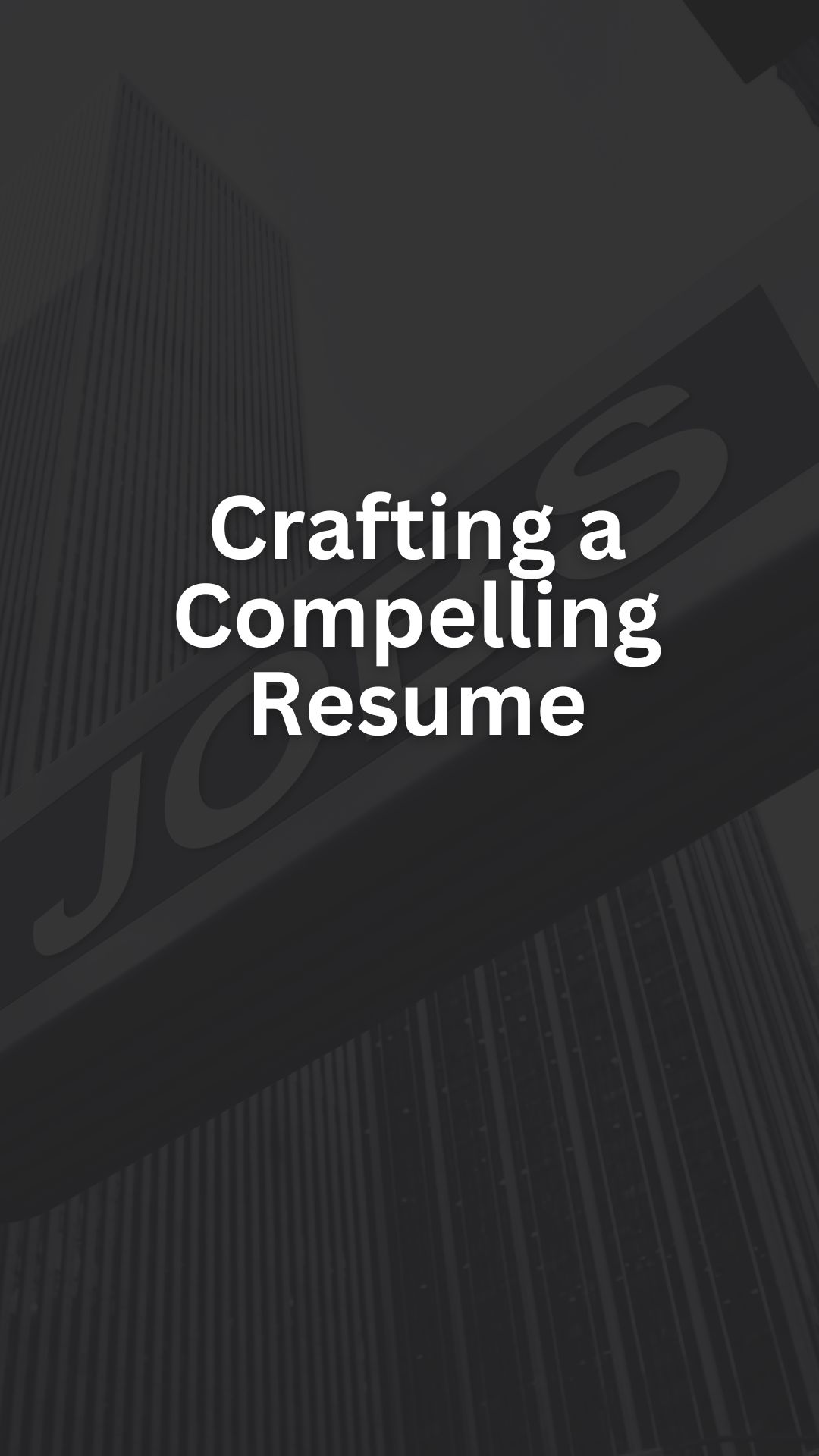
Crafting a Compelling Resume
Switching from academia to industry involves presenting your skills and experience in a way that appeals to employers. You’ll need to highlight your transferable skills and tailor your academic CV into a resume.
Highlighting Transferable Skills
Your academic experience has equipped you with many skills that are valuable in industry.
Research skills show that you can gather and analyze data. Project management demonstrates your ability to plan and execute tasks. Teaching and presentation skills illustrate your capability to communicate complex ideas clearly.
Use bullet points to highlight these skills. For example:
- Managed research projects with tight deadlines
- Presented findings at conferences
- Collaborated with teams to achieve research goals
Soft skills like communication, teamwork, and problem-solving are also important.
Add examples of how you’ve used these skills in your academic work.
Tailoring Your CV to a Resume
An academic CV is often long and detailed. A resume, on the other hand, should be concise—usually no more than two pages.
Start by editing your CV. Remove sections that aren’t relevant to the job you’re applying for.
Focus on job-specific experience. Use action verbs to describe your responsibilities. For example:
- Led a research team
- Developed new methodologies
Make sure to highlight outcomes and achievements.
Industry employers are interested in results and impact, not just duties. If you supervised a project, mention the results: Increased lab efficiency by 30%.

Developing Marketable Skills
To smoothly transition from academia to industry, it’s crucial to build skills that employers seek. This involves staying current with new technologies and obtaining certifications that highlight your expertise.
Embracing New Technologies
Always seek out the latest tools and software in your field. This practice keeps you relevant and competitive.
Employers value candidates who can quickly adapt to new tech trends and implement them effectively.
Try enrolling in workshops, webinars, and online courses.
These can be great for learning about software, coding languages, and other industry-specific technologies.
Engaging in tech communities or forums also helps you stay updated.
Practical steps:
- Follow tech blogs and podcasts.
- Join industry groups on social media.
- Participate in hackathons or coding challenges.
Certification and Training
Certifications validate your skills and show employers that you are serious about your career. They can enhance your resume and give you an edge in the hiring process.
Industry-specific certifications, like PMP for project management or AWS for cloud computing, are highly valuable.
Don’t hesitate to invest time in training programs.
Whether it’s an online course or a bootcamp, the knowledge gained can be a game-changer.
Look into partnerships between universities and companies, as these often offer training tailored to industry needs.
Key actions:
- Identify the top certifications in your field.
- Allocate time for study and practice.
- Explore company-sponsored training programs.
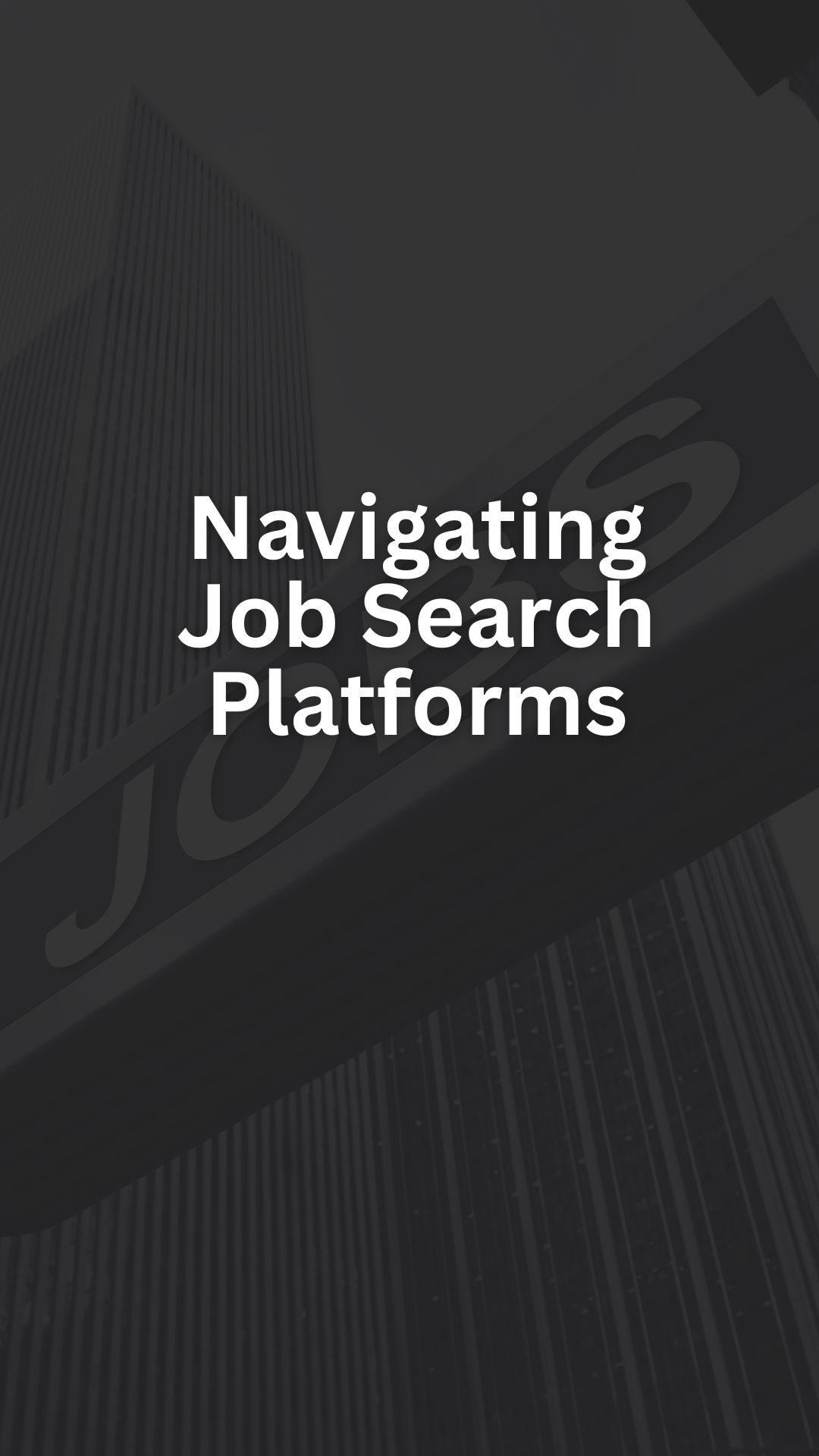
Navigating Job Search Platforms
Exploring job search platforms is crucial for transitioning from academia to industry. This guide will show you how to effectively use job boards and leverage LinkedIn.
Effective Use of Job Boards
Job boards are essential tools for finding job opportunities.
Popular job boards like Indeed, Glassdoor, and Monster list thousands of positions across various industries.
You can use filters to narrow down your search based on location, salary, job type, and more.
Set up job alerts to get notifications when new jobs that match your criteria are posted. This ensures you stay updated without constantly checking the site.
Another tip is to customize your resume for each application. Tailoring it to include relevant keywords can help you stand out to potential employers.
It’s also important to research each company.
Look at company reviews, salary information, and interview experiences shared by other users.
This gives you a better idea of what to expect and helps you prepare for interviews.
Leveraging LinkedIn
LinkedIn is more than just a social network; it’s a powerful job search tool.
Start by optimizing your profile. Use a professional photo, write a compelling headline, and fill out your experience, skills, and education sections.
Include relevant keywords to make your profile easier to find.
Networking is key on LinkedIn.
Connect with industry professionals, join groups related to your field, and participate in discussions. This can help you get noticed and even lead to job referrals.
You should also follow companies you’re interested in to stay updated on their job postings and news.
Make use of LinkedIn’s job search feature.
You can filter job listings, set up job alerts, and even see how you compare to other applicants.
LinkedIn also allows you to apply directly through the platform, often using your profile as your resume. This makes the application process quicker and easier.
Remember to stay active on LinkedIn by sharing posts, endorsing others’ skills, and engaging with content.
This can increase your visibility and signal to recruiters that you’re actively seeking new opportunities.

Preparing for Industry Interviews
Transitioning from academia to industry requires different skills for interviews.
Focusing on both behavioral and technical aspects can increase your chances of success.
Behavioral Interview Techniques
Behavioral interviews aim to assess your soft skills and how you handle various situations.
To prepare, practice common questions like:
- “Tell me about a time you worked in a team.”
- “Describe a challenge you overcame.”
Use the STAR method (Situation, Task, Action, Result) to structure your answers. This helps you give clear and complete responses.
Research the company’s culture and values.
Your answers should align with what the company looks for in employees. Show enthusiasm and be genuine. You want to leave a positive impression.
Technical Interview Preparation
Technical interviews focus on your problem-solving abilities and knowledge in your field.
Study the typical interview questions for your industry.
For software jobs, this might include:
- Coding challenges
- Data structures
- Algorithms
Practice problems on platforms like LeetCode or HackerRank. Time yourself to improve speed and accuracy.
Understand the basics of system design, especially for roles requiring architecture knowledge.
Review key concepts and be ready to discuss them.
Mock interviews can be highly beneficial.
They give you a feel for the interview format and help reduce anxiety.
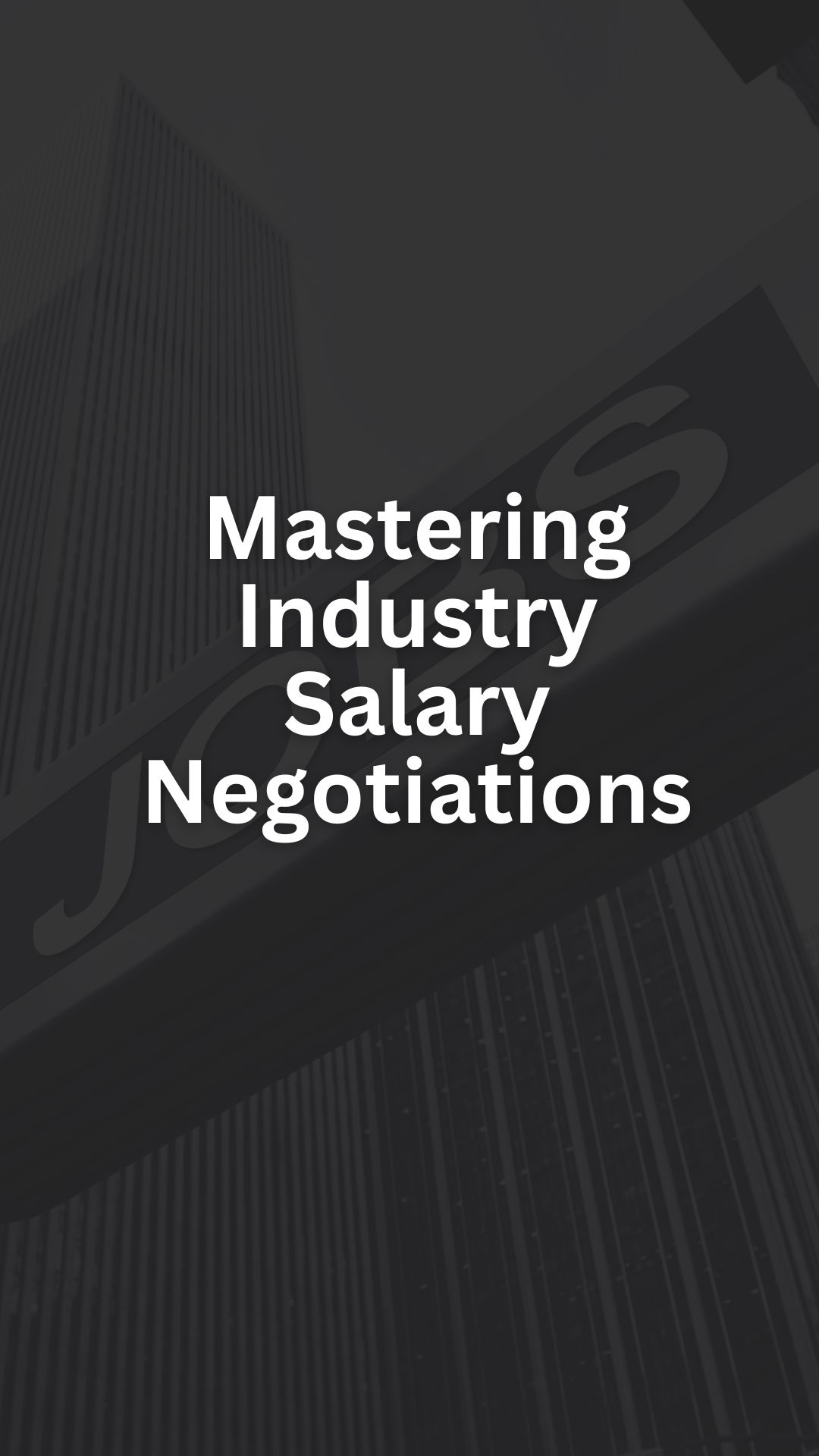
Mastering Industry Salary Negotiations
Getting the right salary is vital.
Start by doing your homework. Research salary ranges for your role, industry, and location.
Websites like Glassdoor and Payscale can help.
Next, practice your pitch.
Know your value. Highlight your skills, experiences, and achievements. Make it clear why you deserve more.
Timing is key.
Wait for the right moment to discuss salary. Often, this is after you get an offer but before you accept it.
Be confident but flexible.
State your desired salary range. Show you are open to negotiations.
Use numbers and facts to support your negotiation.
Instead of saying, “I want more,” try, “Based on industry standards, I believe a salary of $X would be fair.”
Consider the full package.
Look at other benefits such as bonuses, stock options, and vacation days. Sometimes you can negotiate for these if salary is non-negotiable.
Finally, practice patience and persistence.
Negotiations can take time. Stay calm and focused on your goal.
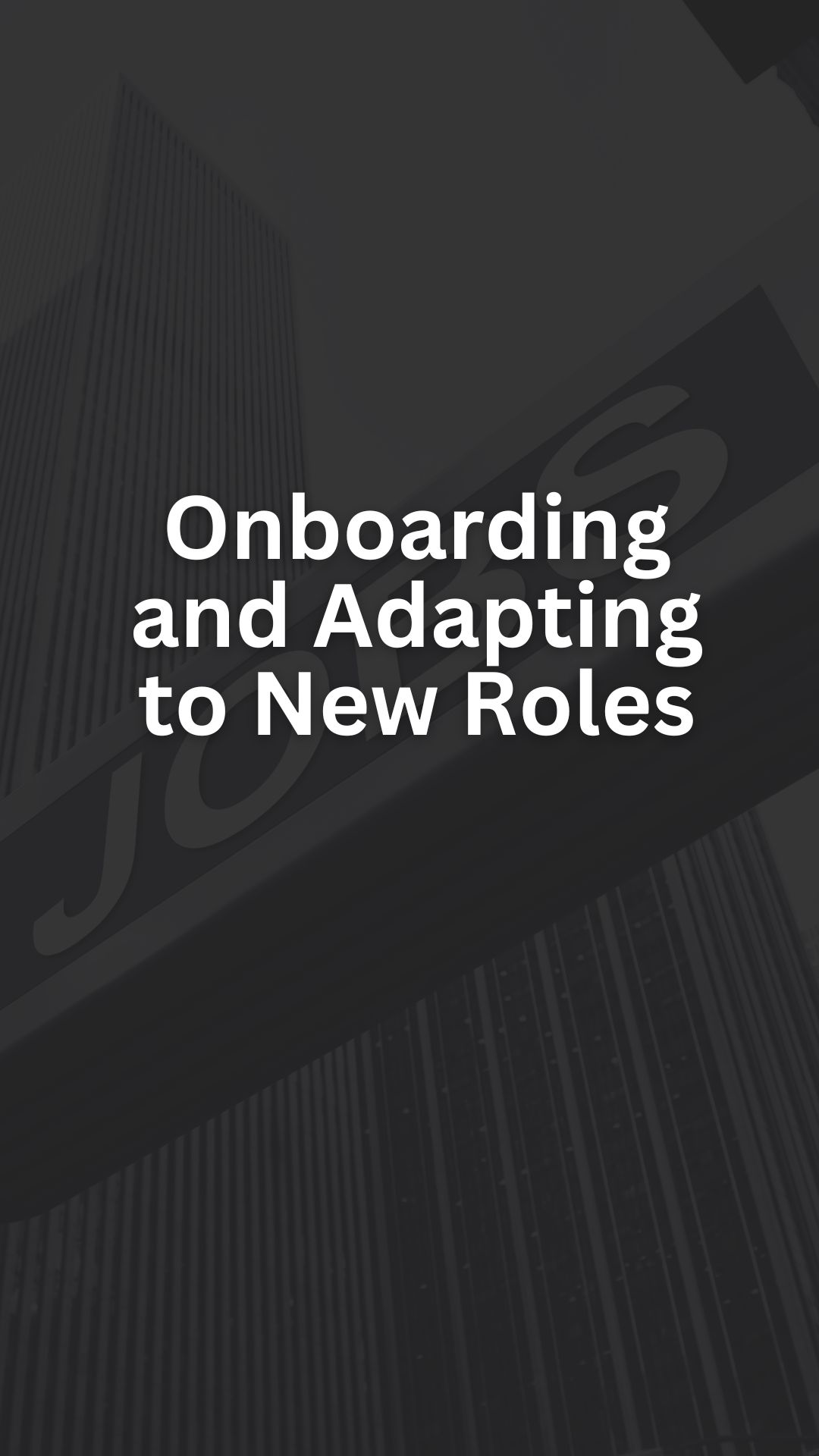
Onboarding and Adapting to New Roles
Transitioning from academia to an industry job requires learning new skills fast and finding ways to fit into your new work environment.
The First 90 Days Strategy
Your first three months on the job are crucial.
Start by understanding your role, responsibilities, and how your work impacts the company. Create a list of what you need to learn and prioritize it.
Tips for the First 90 Days:
- Meet Your Team: Get to know your colleagues and find out who does what.
- Learn the Tools: Familiarize yourself with any software or tools you’ll be using.
- Set Goals: Discuss with your manager and set clear, achievable goals for your first three months.
Communicate openly with your colleagues and ask for feedback. This will help you adjust quickly and make a good impression.
Long-term Career Development
After settling in, think about your long-term career growth.
Take note of skills you’ll need to advance and look for opportunities to develop them.
Steps for Long-term Success:
- Continuous Learning: Take courses or attend workshops relevant to your field.
- Networking: Build professional relationships inside and outside your company.
- Seek Mentorship: Find a mentor to guide you and provide career advice.
Focus on both your short-term and long-term goals. This approach will help you succeed and grow in your new industry role.
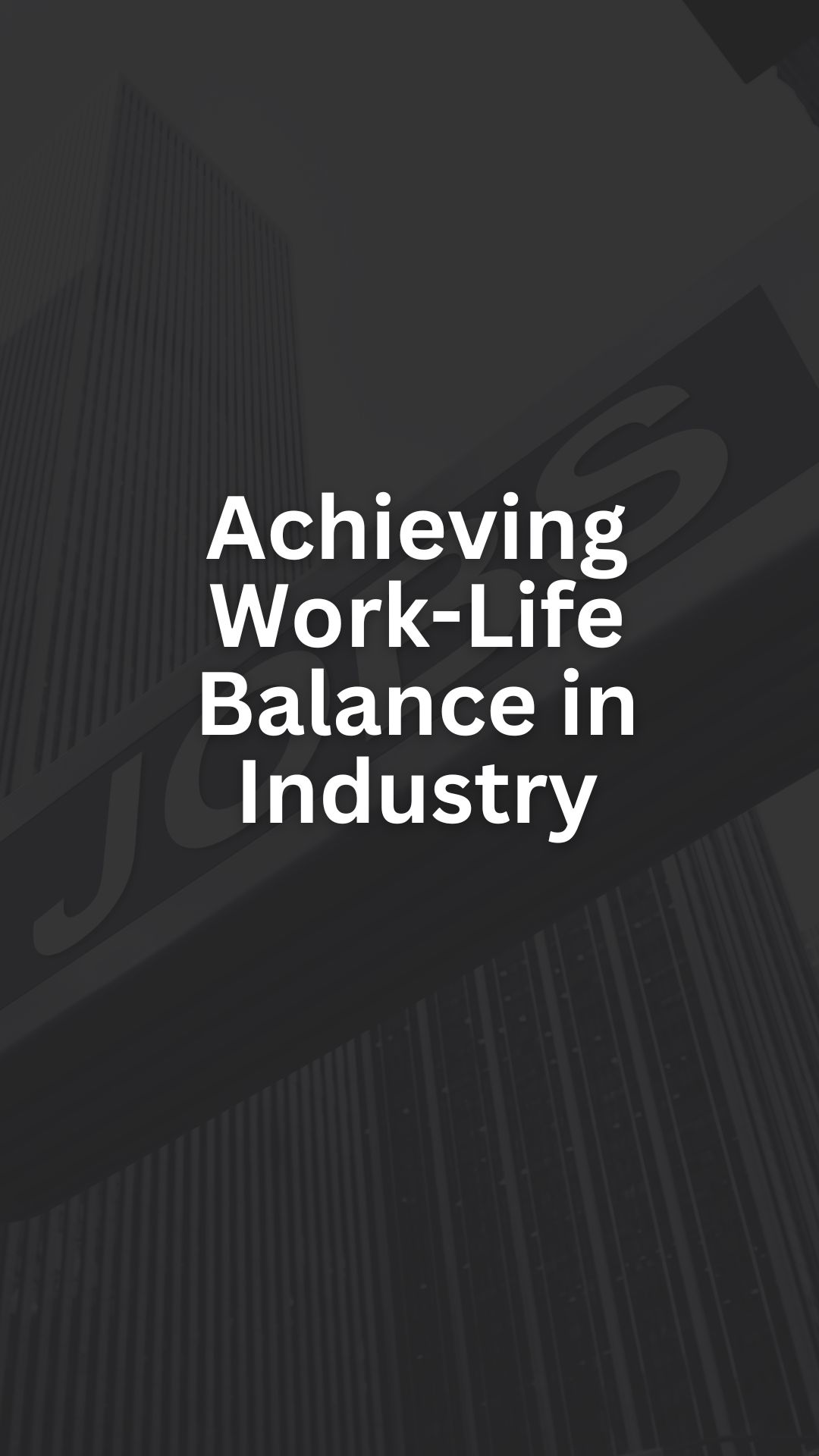
Achieving Work-Life Balance in Industry
Transitioning from academia to industry can be thrilling! To keep your excitement going, finding a good work-life balance is key.
Set Clear Boundaries:
Create a clear line between work and personal time. When work hours are over, turn off your work emails and notifications. Use this time to relax or spend with family.
Prioritize Tasks:
Make a to-do list and stick to it. By focusing on the most important tasks first, you can avoid last-minute stress. Remember, it’s okay to say no sometimes.
Take Breaks:
Regular breaks can boost your energy and focus. Take short walks, grab a snack, or just stretch. It’s amazing how a few minutes of downtime can make a difference in your productivity.
Use Company Resources:
Check if your company offers resources like wellness programs or flexible working hours.
Many industries now understand the importance of work-life balance and provide tools to help you succeed.
| Tip | Action |
|---|---|
| Boundaries | Turn off work notifications after hours |
| Prioritize | Focus on important tasks first |
| Take Breaks | Short walks or stretch regularly |
| Resources | Use wellness programs and flexible hours |
Stay Active:
Exercise is a great way to relieve stress. Even a 15-minute workout can boost your mood. Find an activity you love and make it a regular part of your routine.
Connect with Colleagues:
Building good relationships at work can make your job more enjoyable. Take time to chat with coworkers during breaks. Building these connections can provide support and make work feel less like a chore.
Pursue Hobbies:
Don’t forget to make time for activities you enjoy. Whether it’s reading, playing a sport, or just watching a movie, your hobbies are important to your happiness.

Frequently Asked Questions
Here, you’ll find answers to common concerns about moving from academia to industry, helping you with skills, applications, and cultural adjustments.
What are the top skills I should highlight when moving from academia to industry?
Showcase problem-solving, teamwork, and communication skills.
Highlight your ability to work independently and manage projects. Technical skills like data analysis and using specialized software can also stand out.
How can I effectively transform my academic CV for an industry-focused role?
Focus on relevant experiences and achievements that match industry roles.
Use bullet points to list skills and accomplishments. Avoid academic jargon and use clear, simple language.
What strategies can I employ to smoothly transition into an industry job post-PhD?
Network with professionals in your desired industry. Attend career fairs and industry conferences.
Consider internships or short-term projects to gain experience. Tailor your job applications to highlight your industry-relevant skills.
What should I include in a cover letter when applying for industry positions after academia?
Explain your interest in the role and the company.
Highlight your skills and experiences that are relevant to the job. Discuss your career goals and how the position aligns with them. Keep it concise and professional.
How does the work culture differ between academia and industry, and how can I adapt?
Industry often prioritizes teamwork and fast results.
Be prepared for deadlines and performance metrics.
To adapt, focus on collaboration, be open to feedback, and show flexibility in your work style.
Can you provide tips for explaining my reasoning for transitioning to industry in job interviews?
Be honest and positive. Discuss your desire to apply your skills in a practical setting.
Mention your interest in contributing to a company’s goals and growth. Emphasize how your background prepares you for industry challenges.